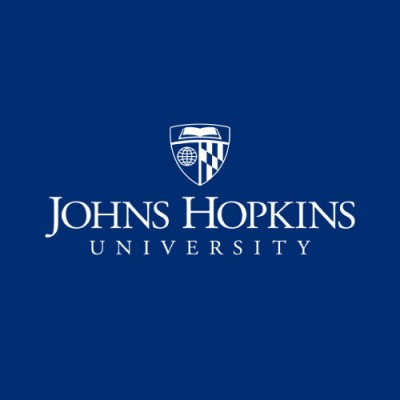Understanding how cancer cells spread enables the development of novel antimetastatic therapies
More than 90 percent of all cancer deaths are attributable to metastasis, rather than growth of the original tumor. Metastasis—the spread of cancerous cells from a primary tumor to colonize distant organs—is the most clinically significant and least scientifically understood aspect of cancer. Currently, the majority of cancer research focuses on the early steps of tumor formation. Dr. Andrew J. Ewald, Associate Professor of Cell Biology, Oncology, and Biomedical Engineering at Johns Hopkins University, School of Medicine is a pioneer in metastasis research, and has developed innovative microscopy, genetic, and real-time analysis methods to understand metastasis.
Through his leading-edge cancer models and molecular techniques, Dr. Ewald and his team have identified the complex process of how cancer cells in the breast acquire the ability to leave the primary tumor, spread throughout the body, and form new metastatic tumors in vital organs, such as the lungs, brains, and bones. His models show the distinct steps in the metastatic process, enabling he and his team to understand the molecular drivers of each of these cell behaviors. His goal is to first understand how metastasis works, and then identify weaknesses in the cancer cell to target theraputically. By understanding how disseminated cancer cells arrive in distant organs, he can identify the key factors that determine if those cells have the ability to grow into life-threatening metastasis, and whether they can be kept dormant or eliminated therapeutically.
Dr. Ewald and his team of Ph.D. students, dual M.D./Ph.D. students, postdoctoral fellows, undergraduate researchers, and staff collaborate extensively with geneticists, cell biologists, systems biologists, chemical engineers, biomedical engineers, theoretical physicists, pathologists, surgeons, medical oncologists, and radiation oncologists. They have made significant progress in the past five years. Their complex models demonstrate the ways in which the cancer cells’ molecular programs change and enable the small clusters of cells to detach from the primary tumor and migrate to distant organs. The next five years are committed to understanding how these small groups of cancer cells grow into life-threatening metastasis, which enables the potential development of novel antimetastatic therapies.
Current research topics include:
- What is the Molecular Basis of Metastatic Growth? Dr. Ewald’s research has revealed that cancer cells switch between growth and migration programs. The cells must switch back to ‘growth’ status to form life-threatening metastasis. Using next-generation sequencing techniques, he and his team seek to identify—across the entire genome—all molecules involved in the first stages of metastatic growth. Their goal is to identify targets for antimetastatic therapy to prevent metastatic recurrence. This will enable them to answer questions such as, “Can we restrain or eliminate the disseminated cancer cells throughout the body?” and “Can we limit or reverse growth of metastatic tumors in patients with metastatic breast cancer?”
- Can We Identify Every Patient Who Will Ever Metastasize? Dr. Ewald and his team seek to leverage their biological insight to develop biomarkers, which will provide precise and quantitative estimates of the future risk of metastatic recurrence on a personalized basis. This information could be used—in a collaboration between the patient and the physician—to individualize their course of treatment. They are currently testing their lead biomarker against panels of hundreds of breast cancer patients with known outcomes. Preliminary data suggests that they will have a high predictive value. Once they successfully identify high-risk patients, novel therapeutic strategies can be created to change their risk of developing metastasis and eliminating metastasis-related mortality.
- How Do Groups of Cancer Cells Travel Through Circulation to Arrive in Distant Organs? Dr. Ewald and his team are collaborating with engineers to build leading-edge models of artificial blood vessels, identifying each step in the metastatic process. They will study—at cellular and molecular resolution—how groups of cancer cells enter and exit the vasculature. This enables them to understand the complex molecular transitions necessary for the cancerous cells to feed new tumors in distant organs.
- Are the Molecular Principles of Breast Cancer Metastasis Relevant to Other Tumor Types? Dr. Ewald and his team adapted their molecular techniques to study how a cancerous tumor in other areas—the lung, pancreas, and liver—invades and metastases. Their goal is to identify the molecular programs driving invasion in metastatic spread across all solid cancers. They will leverage those insights to identify all patients with the greatest risk of metastasis and develop novel antimetastatic therapies.

Bio
Dr. Andrew J. Ewald became a scientist because he wanted to use his intellect to discover the fundamental principles underlying biology and medicine. He later became a cancer researcher to leverage this understanding and improve outcomes for patients. Dr. Ewald obtained his bachelor’s degree with honors in physics/biophysics from Haverford College and earned a Ph.D. in biochemistry and molecular physics from the California Institute of Technology (CalTech).
While pursuing his research at CalTech, two of Dr. Ewald’s relatives were diagnosed with breast cancer. He had developed advanced methods to visualize embryonic development in real-time. He then realized he could use these same approaches to study how breast tumors grow and spread through the body. He completed his postdoctoral work in epithelial biology & cancer at the University of California, San Francisco. He worked with Zena Werb to apply his unique set of techniques. He joined her laboratory and became an expert in the biology of the breast, mammary glands, and in breast cancer metastases.
Dr. Ewald joined the Johns Hopkins faculty in 2008. He and his lab have made rapid progress over the past few years in breast cancer metastasis research, developing novel cancer models to demonstrate the first steps in metastasis. Though it’s a very complex process and difficult to study, Dr. Ewald is determined to understand this important issue and use his insights to develop actionable solutions for patients. His work has significantly contributed to cancer research.
When he’s not in the lab, Dr. Ewald enjoys mountain biking, and spends the majority of his time with his family; his daughter Eleanor, his son Michael, and wife Shannon, who also works in cancer research. He and his wife met at as graduate students during orientation week at CalTech.
In the News
Publications
Videos
Awards
Great Valley High School Alumni Wall of Fame, 2014
American Cancer Society Research Scholar 2011-2016
Breast Cancer Research Foundation Grantee 2013-present
Fellow, Keith R. Porter Endowment: for exceptional contributions to cell biology, 2014-17
Keynote Speaker, Gordon Research Seminar, Directed Cell Migration, 2015
SPIE Systems Biology Pioneer Award: for development of epithelial organoids as a platform for tissue-level systems biology, 2015
Metastatic Breast Cancer Network Research Leadership Award: for pioneering the real-time study of breast cancer invasion and dissemination, 2015
Elected Vice-Chair (2017) & Chair (2019) Gordon Research Conf. Cell Contact and Adhesion, 2015
Patents
Molecular Signatures of Invasive Cancer Subpopulations
U.S. Patent No. 14/276,099. Issued in 2014 to Johns Hopkins University.


